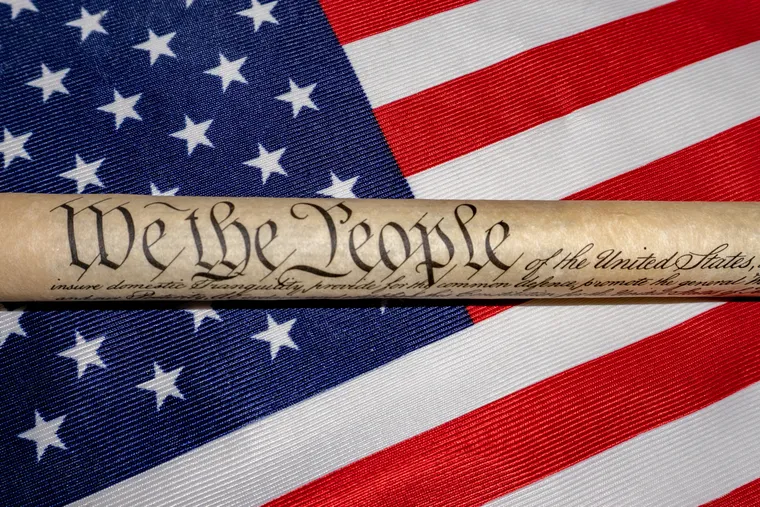Originally Published by Right Side Broadcasting Network: https://www.rsbnetwork.com/news/we-the-people-patriotism-and-a-christian-principle/
Within the religion of Christianity, freedom and liberty are the focus. After all, believers are rescued from their sins by the death and resurrection of Jesus Christ.
The foundational point of Christianity lies within this concept of freedom from sin.
“For you were called to freedom, brothers. Only do not use your freedom as an opportunity for the flesh, but through love serve one another" (Galatians 5:13.
“We the People” is one of the most popular phrases for liberty-loving patriots. Freedom and liberty have a unique and powerful relationship with the doctrines of Christianity.
Throughout history, Christian soldiers have fearlessly fought for liberty, embodying the profound connection between Christianity and patriotism. Whether it was Christian abolitionists bravely seeking to abolish slavery or soldiers courageously fighting for liberty, the United States has stood as a beacon of Christianity. This connection is evident in both its past and, hopefully, in the times to come.
J. I. Packer wrote, “The most convenient starting-point is the New Testament’s insistence that the Gospel brings freedom. ‘Where the Spirit of the Lord is, there is liberty’ (II Cor. 3:17). When God’s Son sets men free, they become free indeed (Jn. 8:36)."[1]
Looking back at the original Protestant Reformation, Reformers such as Martin Luther, John Knox and John Calvin emphasized salvation by grace and faith alone. This delivered freedom from unscriptural practices and pressure. Likewise, the colonists declared independence from oppressive government control during the American Revolution.
Using the Bible and Christian teachings as their defense, the American patriots stressed their (humanity’s) freedom at the core of their argument. Presbyterian minister John Witherspoon declared, “It is as creatures of God, created in the image of God, that man possess those inalienable rights. And as the God of the Bible is their only source, the religion of the Bible is their only effective conservator.”[2]
Many historians argue that the Great Awakening significantly influenced the movement for independence. This religious revival, led by famed pastors such as Jonathan Edwards and George Whitfield, emphasized freedom and liberty within the context of the Christian faith and Jesus’ message of deliverance from evil. Their teachings resonated with New England and inspired colonists to consider a deeper form of freedom: freedom from tyrannical government control.
The Pilgrims sought a divorce from the Church of England, while the Puritans sought to restore the core essence of the faith, justification by faith alone. Both people's groups' wishes were correlated with freedom and the doctrines of the faith.
While not all Americans are self-acknowledged religious people, and many aren’t even adherents to the Christian faith, the very concept of We the People is tied to Jesus Christ and liberty. Freedom of religion exists in the United States because of the original patriots who knew one denomination couldn’t run the country. Freedom allowed the Baptists, Presbyterians and Lutherans to coexist in a nation focused on liberty. R.C. Reed wrote, “The first Declaration of Independence was put forth by the Presbyterians of Mecklenburg, N.C., and the first religious body to speak out in favor of separation from Great Britain was the Presbyterian Synod of Philadelphia.”[3]
The nation has always had a special relationship with Christianity, and the Declaration’s fine print indicates that Christianity is the core of the country’s founding.
It’s no coincidence that the Appeal to Heaven and Betty Ross flags often represent both patriots and Christians. While the nation is a melting pot of different religions, cultures, and people, the historical connection of Christianity to the original founding principles of the nation resonates not only in the past but today.
There would be no freedom or the United States without Jesus Christ and His soldiers who have laid their lives for liberty and justice.
[1] A.M. Stibbs & J.I. Packer, The Spirit Within You: The Church’s Neglected Possession, (Port St. Lucie: Solid Ground Christian Books, 2018).
[2] William P. Breed, Presbyterians, and Its Services in the Revolution of 1776, (Philadelphia: Presbyterian Board Publishing, 1875), 14.
[3] R.C. Reed, The Gospel as Taught by Calvin, (Grand Rapids: Baker Book House, 1979), 146.


